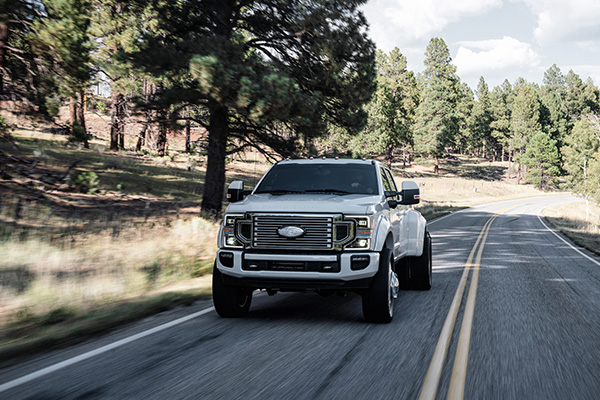Diesel Engine Oil Specs: Making Sense of CK-4 & FA-4
Hardworking truckers and diesel enthusiasts have a ton of money wrapped up in their rigs. A new semi can easily cost nearly $200,000, while turbodiesel pickups can eclipse $60,000, and more with a few modifications. For that reason, the topic of diesel regulations often elicits an earful. The good news, however, is that advances in diesel technology in response to regulations have resulted in diesel engine oil specifications that promise improved engine protection compared to previous specs.
2017 model-year diesel technology upgrade
To meet more strict fuel-economy and emissions regulations, diesels built in 2017 and later have set a new bar for diesel technology.
Engines are made with new materials, produce more horsepower and torque than ever, run much hotter, operate under higher boost pressure and can burn up to 20 percent biodiesel.
These advances are great for diesel owners, but they place new demands on diesel oil. And these demands come in addition to the ongoing requirement from enthusiasts and professionals for increased engine protection.
Upgraded protection for older & newer diesels
Meeting the demands of the latest diesel engines means engine oil must offer increased protection compared to prior generations of oil technology.
This added performance applies to older diesel vehicles as well as 2017 model-year and newer diesels.
Diesel engine oil specifications (API CK-4 & FA-4) take divergent paths
To meet regulations for increased fuel economy and reduced emissions, 2017 model-year and later diesels rely on a combination of engine technology and unique oil technology. Some can use oils formulated with a lower viscosity than traditionally used (e.g. 15W-40) to meet the demand for increased fuel economy and reduced emissions without sacrificing wear protection.
The American Petroleum Institute (API) has established its FA-4 performance specification for 2017 and newer diesels. Due to the oil technology needed to meet low-viscosity requirements, API FA-4 oils can NOT be used in diesel engines made prior to 2017 unless recommended by the engine manufacturer.
For 2017 model-year and older diesels, where the engine manufacturer does not allow for use of FA-4 oils, the API has established its CK-4 specification.
The following table outlines the two specifications. Note that model-year recommendations are a guideline – check the owner’s manual for specific requirements.
API CK-4 & FA-4 Diesel Engine Oil Specifications
|
Model Year 2017 & Older
|
Model Year 2017 & Newer |
|
|
API Specification |
CK-4
|
FA-4 |
|
OEM recommendations may vary (check your owner’s manual) |
CK-4 only |
Allows CK-4 and FA-4 |
|
Compatibility |
Offers more protection and is backward compatible with API CJ-4, CI-4+… |
Do not use in 2016 model year or older vehicles, or where API CJ-4, CI-4+… are specified |
|
Viscosity range |
Wider range of viscosities, including traditional heavier viscosities: 15W-40, 10W-30, 5W-40 |
Lower viscosities for maximum fuel economy: 10W-30 and 5W-30 |
|
Protection upgrade over CJ-4, CI-4+… (applies to both CK-4 and FA-4) |
• More piston-scuffing protection for reduced wear • Better thermal control to resist oil thickening, aid in cooling and reduce wear • Improved shear stability to help prevent oil from thinning
|
|
While two diesel oil specifications complicates things, these upgrades help independent trucking companies and contractors reduce maintenance costs and extend equipment life, which enables them to compete profitably in markets that demand peak reliability and efficiency.
To find the right AMSOIL synthetic diesel oil for your application, head over to AMSOIL.com and use our Product Guide


